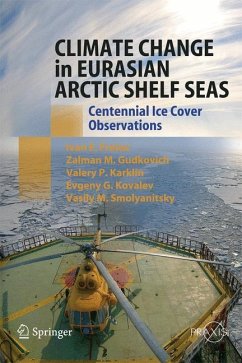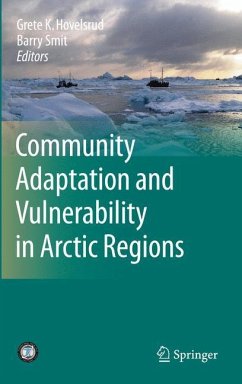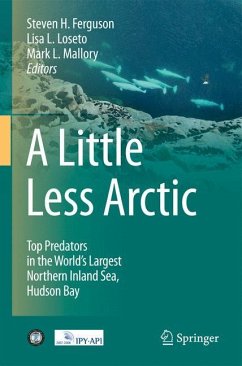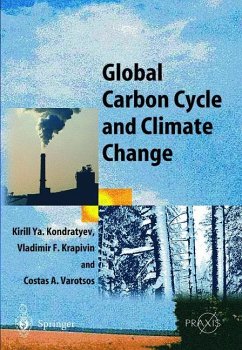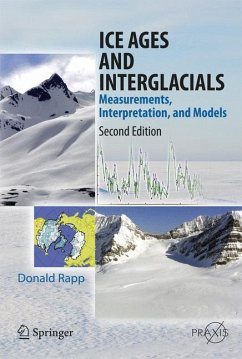
Climate Change in Eurasian Arctic Shelf Seas
Centennial Ice Cover Observations
Versandkostenfrei!
Versandfertig in 1-2 Wochen
77,99 €
inkl. MwSt.
Weitere Ausgaben:

PAYBACK Punkte
39 °P sammeln!
In this book the eminent authors analyse the ice cover variability in the Arctic Seas during the 20th and early 21st centuries. In the first two chapters, they show that multi-year changes of the sea-ice extent in the Arctic Seas were formed by linear trends and long-term (climatic) cycles lasting about 10, 20 and 60 years. The structure of temporal variability of the western region (Greenland - Kara) differs significantly from the eastern region seas (Laptev and Chukchi). In the latter region, unlike the former area, relatively short-period cycles (up to 10 years) predominate. The linear tren...
In this book the eminent authors analyse the ice cover variability in the Arctic Seas during the 20th and early 21st centuries. In the first two chapters, they show that multi-year changes of the sea-ice extent in the Arctic Seas were formed by linear trends and long-term (climatic) cycles lasting about 10, 20 and 60 years. The structure of temporal variability of the western region (Greenland - Kara) differs significantly from the eastern region seas (Laptev and Chukchi). In the latter region, unlike the former area, relatively short-period cycles (up to 10 years) predominate. The linear trends can be related to a super-secular cycle of climatic changes over about 200 years. The most significant of these cycles, lasting 60 years, is most pronounced in the western region seas.




